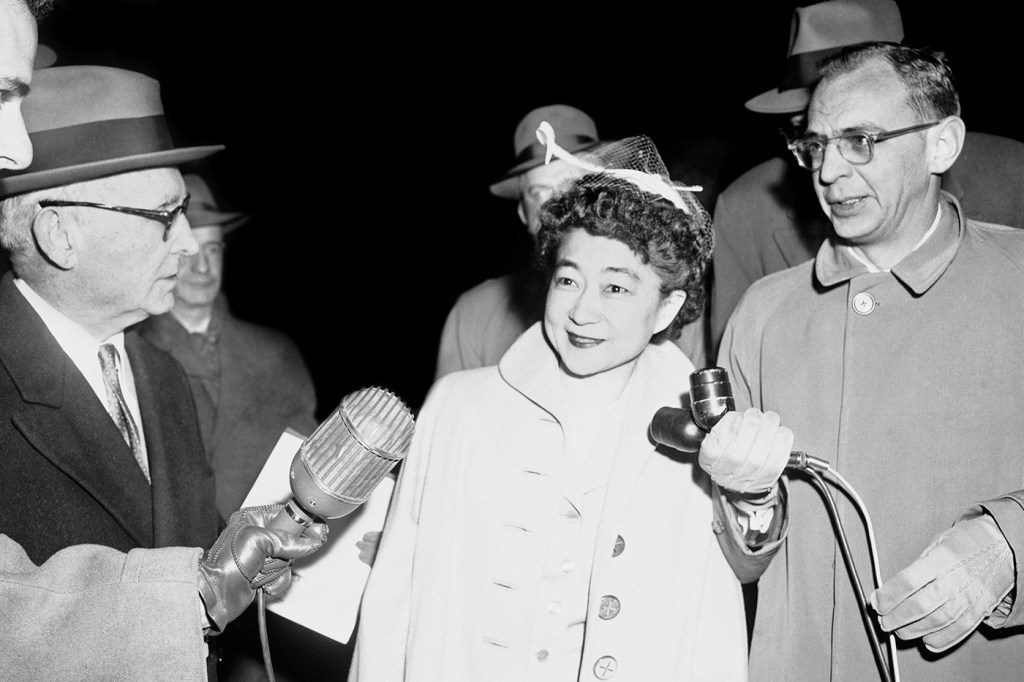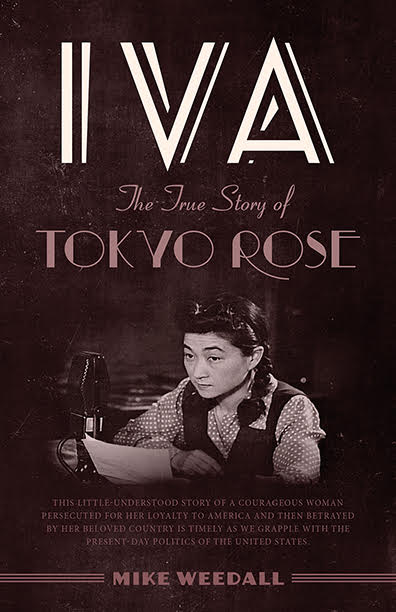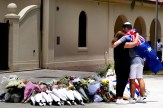Here’s how to write your first novel at 70, according to Northeastern alum Mike Weedall

The idea followed him throughout his global travels and the seismic changes in his career. Mike Weedall was a tennis professional who became an energy executive, but he had always maintained a love for history, dating back to his years at Northeastern.
What he really wanted, someday, was to become a writer.

Photo courtesy of Mike Weedall
At age 70, Weedall has published his debut novel. Iva: The True Story of Tokyo Rose is a fictional take on the real-life events surrounding Iva Toguri, a 25-year-old American trapped in Japan during World War II who was forced to make pro-Japanese broadcasts for Radio Tokyo, though she steadfastly refused to make anti-American claims over the air. But when she returned home to the U.S. after the war, Toguri, the daughter of Japanese immigrants, was misidentified as a radio propagandist called Tokyo Rose. Toguri was charged with treason in a newsmaking trial steeped in racial prejudice and political jingoism.
“The story is gripping, and Weedall recounts Toguri’s years of isolation, prison, and particularly her Kafkaesque trial with excellent pacing and a keen eye for drama,” wrote Kirkus in its book review. “An armchair historian delivers a remarkably compelling story of justice denied.”
Weedall’s transformation from writing for business to writing fiction wasn’t easy.
“It’s a totally different style of writing to put together a readable historical novel,” says Weedall, who lives in Portland, Oregon. “When you write a technical paper, you’ve got to tell somebody four different times what you want them to know. For this book, I had to figure out how to tell stories—why somebody in Japan decides to do the things she did and the factors that were around her.”
Weedall’s original plan was to turn his 1972 history degree from Northeastern into a career of teaching history. That dream was sidetracked by his interest in tennis. He became the head professional at a tennis club in Tucson, Arizona, and competed on the minor-league circuit until a shoulder injury forced him onto Plan B. After he earned a master’s in environmental administration at the University of Arizona, Weedall became a proponent of environmental programs for Bonneville Power Administration and other utilities over a span of three decades.
Though Weedall retired in 2012, he kept working as a consultant for another four years.

Book cover courtesy of Mike Weedall
“The one that really burned me out was spending a month in the Kingdom of Jordan writing an energy plan,” Weedall says. “I said, ‘I never want to go to another airport again in my life.’ I came home, played tennis, and then started to think about writing a book.”
Weedall invested three years in drafting a historical novel about nurses who served in the Korean War. Eventually, he set that project aside.
“It was so lousy. I had to put it on the shelf,” Weedall says. He struggled with “the simple stuff, like learning how to write dialogue, how to create emotional peaks and valleys. Then I stumbled across the story of Iva Toguri.”
Weedall immersed himself in the numerous books, historical documents, and academic papers that had been compiled on the myth that Toguri had been Tokyo Rose. Though Toguri found herself repeatedly in the wrong place at the wrong time, she also made a series of regrettable decisions that contributed to her traumatic conviction on a count of treason, resulting in six years of imprisonment. She emerged from her notorious public life with hard-earned wisdom and vindication in the form of a pardon in 1977 from U.S. President Gerald Ford.
“The number one thing was to try and get inside her head,” Weedall says. “The world is made up of people making decisions, good and bad, and we all evolve. The most interesting thing was to study how she did evolve and mature as a person.”
Satisfied with his first effort, Weedall has returned to his original focus—the novel of the Korean War nurses. The writer keeps writing.
For media inquiries, please contact media@northeastern.edu.






